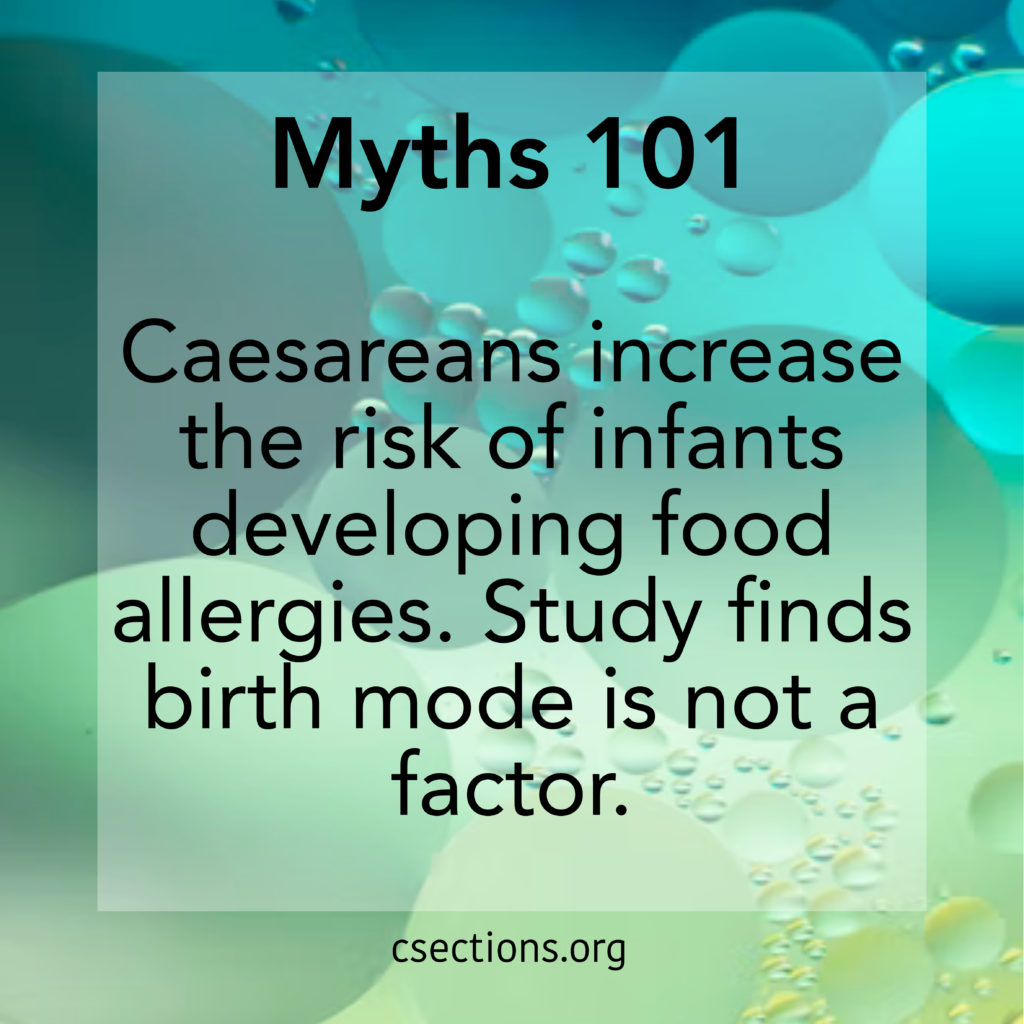
Caesareans are blamed for all sorts of things: childhood obesity, autism and food allergies to name just three. Time and again research finds against such claims, but this doesn’t make for good headlines. So we are left with the myths spinning around in conversation and for many of us, it is on the back of these that we attempt to make our birth choices.
Last year an Australian study concerned about the rise in infant food allergies decided to evaluate whether there was any truth in the idea that caesareans increase the risk of an infant developing food allergies. They considered whether the caesarean was an emergency or elective, and whether it was prior to labour commencing or not. Regardless, of the 2045 births assessed, they found the incidence of food allergies to be almost identical across mode of birth:
- Caesarean delivery – 12.7% infants with food allergies
- Vaginal delivery – 13.2% infants with food allergies
If anything there is a fractionally higher incidence in food allergies with vaginal deliveries.
While caesarean babies do not have the same level of exposure to the mother’s gut and vaginal bacteria, this “doesn’t appear to play a major role in the development of food allergy.” Associate Professor Peters
What does this mean for Mums?
One of the things we frequently worry about as we try to make choices about our birth options is all the science telling us one way is better than the other. There are of course pros and cons to both modes, and what we really need is accurate information, not myths.
And for those mums facing an unwanted or unplanned caesarean intervention this new knowledge may help to allay at least one fear, making for one less thing to worry about.
